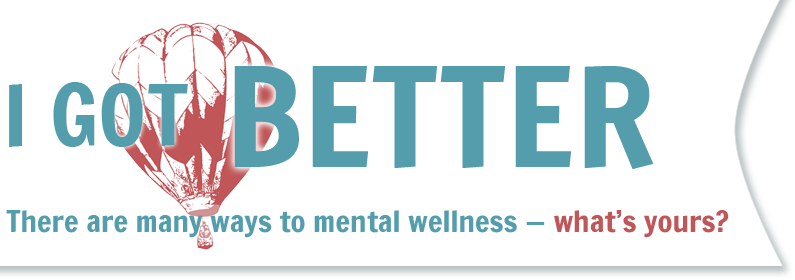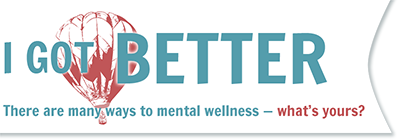Positive Ways to Deal With Life Challenges
Kerrie Melton; Manteca, CA

During your mental health care, have you often felt hopeful about your chance of getting better?
Yes. When I was finally able to get housing it helped a lot, but what helped more than anything was being able to get a peer specialist job working with other consumers and helping them to overcome similar challenges.
During your mental health care, have you often felt hopeless about your chance of getting better?
Yes. There were times that I felt like giving up all together. I have had times where I was unable to make important decisions resulting in very stressful life events (especially homelessness). There were times when I isolated and didn’t want to do anything and it didn’t feel like I would ever feel happy (or any kind of emotions again).
Has a mental health provider ever told you that you could reach a personal goal despite your psychiatric diagnosis (for example, education, career, independent housing, relationship, children, etc.)?
Yes. I had a therapist that believed in me and actually helped me to set some short and long term goals while I was in therapy while I was homeless. She also helped to set me up with the program that eventually helped to provide me with housing.
Has a mental health provider ever told you that you could not reach a personal goal because of your psychiatric diagnosis (for example, education, career, independent housing, relationship, children, etc.)?
Yes. My psychiatrist thought that I was being grandiose when I told her that I was planning to purchase my own home. I found a program that I qualified for and despite the negativity from this provider, I took the necessary steps and was able to purchase my own home (which I have now lived in for almost 3 years).
If you overcame hopelessness that you could get better from a mental health or emotional problem, was there a turning point for you?
The turning point for me happened by attending groups and classes and actually working on positive things in my recovery. I was able to secure employment as a peer specialist because of my participation in peer support groups and my recovery was spurred on even further after creating and following my W.R.A.P.
Tell us what recovery means to you. How would you define recovery from mental health or emotional problems in your own words?
Recovery to me is learning better and more positive ways to deal with life challenges. I like utilizing the W.R.A.P. because it keeps me more in tune to my personal needs. I am able to use my wellness toolbox in order to get me through various challenges and mental states in better ways than I ever have before in my life. Knowing my triggers and having an action plan is beneficial in coping with day to day struggles. My daily maintenance plan also helps me to stay on even keel emotionally. I have also learned in my recovery how important it is to have a good support system. I am able to maintain and keep myself from falling into a crisis, although if a crisis was to occur I feel that I am much better prepared to handle it.
Can you give examples showing you have gotten better from a mental or emotional problem, such as how you are doing well or accomplishing goals you have chosen?
I am currently working at two peer specialist jobs within the mental health field. I went from being homeless in 2005 to owning my own home in 2009. I received an Associates Degree in Behavioral and Social Science in 2011 and continue taking coursework to complete a Bachelors in Psychology.


